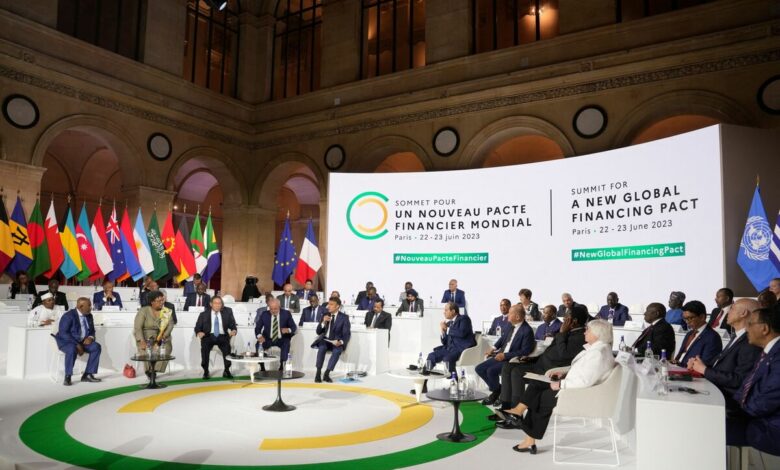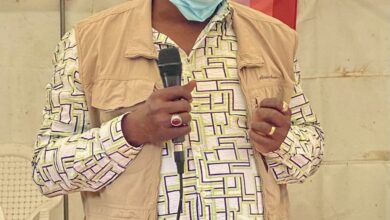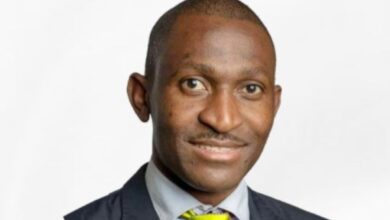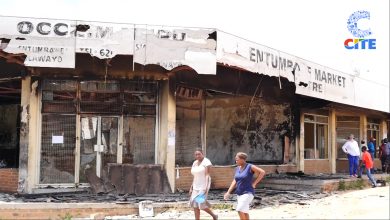African leaders call for collaborative climate investments to close gaps in climate financing

By Paul Sixpence
FOURTY world leaders gathered in Paris, France from 22 – 23 June 2023 for the Paris Summit to discuss a new global climate financing pact. African leaders led the charge in calling for equality and collaborative development of global climate policies and innovative financing solutions.
The Paris Summit focused on poverty, inequality, food insecurity and restructuring of the global financial architecture.
“Africa should never be seen as a continent that needs generosity, we must be treated as equals,” said President Ramaphosa of South Africa. “Even in multi-lateral institutions we want to be treated as equals and if our equities are at the low ebb there must be ways in which that can be addressed.”
Presidents Hakainde Hichilema (Zambia), Cyril Ramaphosa (South Africa), Denis Sassou Ngueso (Congo) and William Ruto (Kenya) called for collaborative climate action, financing, green and circular economy investments.
“It’s so important for us as a global community to mobilise resources, these resources must be mobilised to help grow the economies of less developed countries,” said President Hakainde Hichilema. “By so doing, we are creating capacities in those economies to mitigate against climate change and reduce poverty.”
Global climate financing
Opening the summit, Emmanuel Macron, President of France called for a “public finance shock” to address poverty, food insecurity and inequalities caused by climate change.
The World Bank pledged to pause debt repayments for poor nations hard-hit by climate shocks. However, the “debt pause” will only apply to new loans not existing ones.
The International Monetary Fund (IMF) pledged to avail US$ 100 billion in Special Drawing Rights (SDRs) to help developing countries fight climate change. The SDRs were previously held by developed nations to help fight COVID-19.
France proposed the raising of a further US$100 billion through public and private initiatives to combat climate change in the developing world.
Climate finance experts estimate that poor nations need at least US$2 trillion per year till 2030 to effectively combat climate change.
Reform of the global finance architecture
The summit achieved consensus on the need to reform global finance institutions.
“What is important to many of us is that there should be solid consensus on the reform of the financial architecture of the world because, without that reform, the dreams we have to address our challenges will not be realised,” said President Cyril Ramaphosa. “There needs to be more cooperation between multilateral development banks and the private sector to ensure that there is no fragmentation.”
Debt restructuring
Zambia struck a deal to restructure US$6.3 billion in debt owed to foreign governments including China, in what is considered to be a breakthrough for indebted nations.
“One of the lessons of our (Zambia) debt restructuring that is applicable to poverty reduction and climate change is the issue of speed at which we do things. When we took office 21 months ago, this process (debt restructuring) was already underway under the G20 framework. We are happy that it happened but for countries coming after us, there is need to expedite the processes,” said President Hichilema.
Climate finance experts and advocates are sceptical of debt restructuring deals done without public participation ostensibly by multi-lateral lenders. There are fears that Zambia could be moving into in a debt trap.
“Debt restructuring is not only about repayments or money,” said Sydney Chisi, Executive Director at climate justice advocacy organisation, Reyna Trust. “It’s about loan contraction terms and governance. Debt restructuring deals amount to surrendering fiscal policy control to external lenders and bypassing public participation.”
“These frameworks do not deal with illegitimate debt caused by the neo-liberal agenda of the lenders. It won’t stop Zambia from paying given that this is a “pause.” What happens when they decide to move? In any case, how much money has been pushed towards the Russia-Ukraine war against money for climate action?” Chisi further queried.
Deal or no deal on taxes for climate financing?
There are ongoing discussions on identifying innovative climate financing solutions. One of the proposals on the table is maritime tax. France is an advocate for maritime tax but has failed to garner support from other developed nations. China, the United States of America and other European nations are opposed to shipping tax.
“This is tax-free sector (global shipping industry). And there’s no reason why it’s not taxed,” said President Macron.
The Paris Summit did not make any firm commitments on maritime tax.
Climate finance experts believe that shipping tax could raise about US$100 billion per year.
All pledges and commitments made at the Paris Summit are not binding. They are symbolic gestures aimed at encouraging governments to address the climate crisis.
It’s all talk without action
Developing nations expressed mistrust of rich nations commitments to honouring climate financing pledges.
President Ramaphosa called on the summit to adopt resolutions aimed at reforming the global finance architecture and supporting clean energy transition in Africa. He said this will signify commitment by rich nations and multi-lateral development banks to global climate financing.
“A number of commitments that have been made, have not really been fully lived up to,” said President Ramaphosa. “Important outcomes from this summit should be the reform of the world financial architecture and a practical infrastructural project that is going to add value. If we can do that, we as Africans we can be convinced that these summits are really meaningful.”
Presidents Ramaphosa and Ngueso are championing the development of clean energy through power generation investments at Inga dam. Inga dam has the potential to provide hydro-electrical power to 12 – 15 African states.
Despite being one of the countries hard-hit by the effects of climate change, Zimbabwe was not represented at head of state level at the Paris Summit. The government of Zimbabwe recently announced plans to regulate the carbon credit industry with a proposal to keep 50 percent of revenues, with communities and investors splitting the remainder at a ratio of 20 percent to 30 percent respectively. The Kariba REDD+ project is the country’s largest carbon offset initiative. It covers 785 000 hectares of forest and is being implemented by a local firm, Carbon Green Investments and Switzerland-based South Pole.







Its very helpfull to gather knowledge.
Good morning,
I hope you are doing well and fine! It is a pleasure to meet you. We are REFUGEE TOGETHER FOR SOCIAL TRANSFORMATION.
We are raising money for refugee children in our organization to have a
warm and loving Christmas party for 2023. The mission of this event is to reward the best refugee children’s breakdance and to share the culture and sporting value of breakdance among the public under the theme: “CHILDREN’S LIFE IN THE CITY TALENT SHOW”
It is to this cause that we have organized an event called children’s life in the city talent show. This activity will be held on Friday 8th of December 2023 at the sharing youth centre in Nsambya-Kampala, Uganda; where we will be giving Christmas gifts .The event will have a series of activities such as: Speech, Slam, Poetry, Music and Dance Performances.
Do you like to seeing refugees from Democratic Republic of Congo, Eritrea, Ethiopia, , Burundi, South Sudan, Sudan, and Rwanda, (while others come from host communities) with happy and loving children? Do you possibly have
children yourself?
Do you think happy and loved children develop better? Would you donate to a cause that supports disadvantaged youth and refugee children?
REFUGEE TOGETHER FOR SOCIAL TRANSFORMATION aims to help conclude a very stressful school year for the children on a happier
note. This will be possible with $30 donation from 100 generous
people which equates to our goal of raising up to $3,000. Your thoughtful donation will be spent the in the following way:
$10 for food and drinks
$20 to buy a Christmas gifts
With your help, you can be a child’s Santa clause and put a smile on 1 of 100 children’s faces this Christmas by sponsoring their Christmas school party.
Email: refugeetogetherforsocial2020@gmail.com
Cell phone: +256 784797276 (Kapalakasa Zelo Chiley) organizer
About Us
Refugee Together For Social Transformation is a voluntary organization established in the year 2020-08 and registered in Uganda. The organization specifies on IT Education, Skill Training, women empowerment, Institution development at a local level, livelihood, Child Protection, Education, Old Age Caring and Health.
Please for further details I refer you to this links:
https://rtst-uganda.com
https://www.instagram.com/rtstuganda https://twitter.com/RtstUganda
https://www.facebook.com/rtstuganda
We remain available should you need further clarifications.
With my very best regards and wishing you a good afternoon,
Mr .Kapalakasa Zelo Chiley. Iam a Refugee from DR Congo living in Uganda. I am the founder of “Refugee Together For Social Transformation”